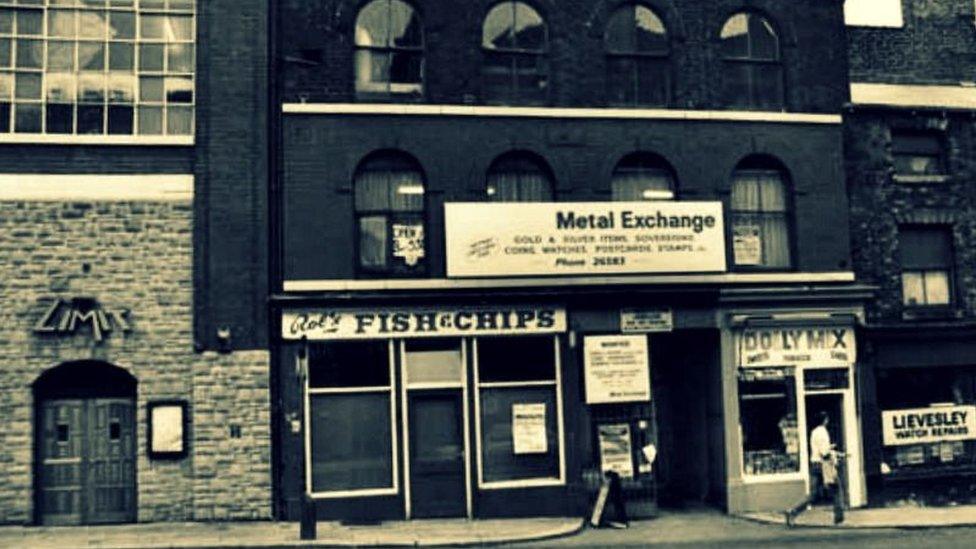'Sticky floors, 60p pints - our club made us the UK's synth city'
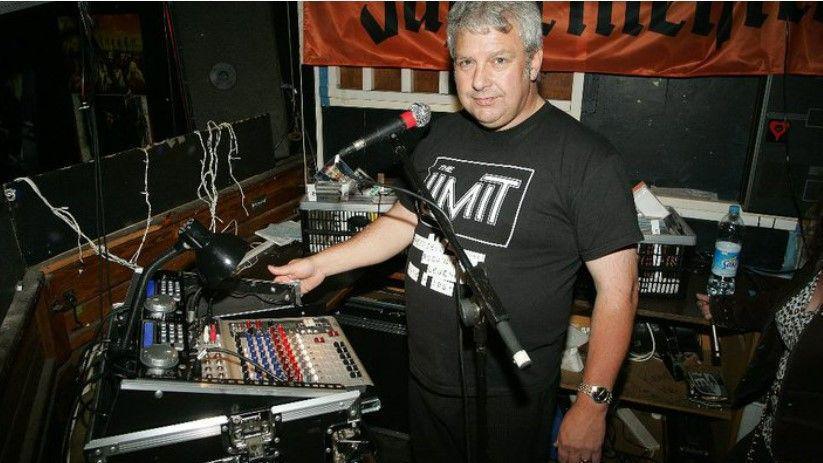
Paul Unwin was The Limit's manager and DJ in its heyday
- Published
A nightclub remembered for its "sticky floors and 60p pints" as well as its significant contribution to Sheffield's music scene is marking its 50th anniversary with a project to collect memories.
The Limit opened on the city's West Street in 1978 and hosted The Human League, Def Leppard and Depeche Mode in its heyday before closing in 1991.
Considered the birthplace of the electro-pop movement in Sheffield, the two-year Synth City project will showcase its cultural legacy.
Former manager and DJ Paul Unwin said that the venue, despite its small size, was "so important" to the scene.
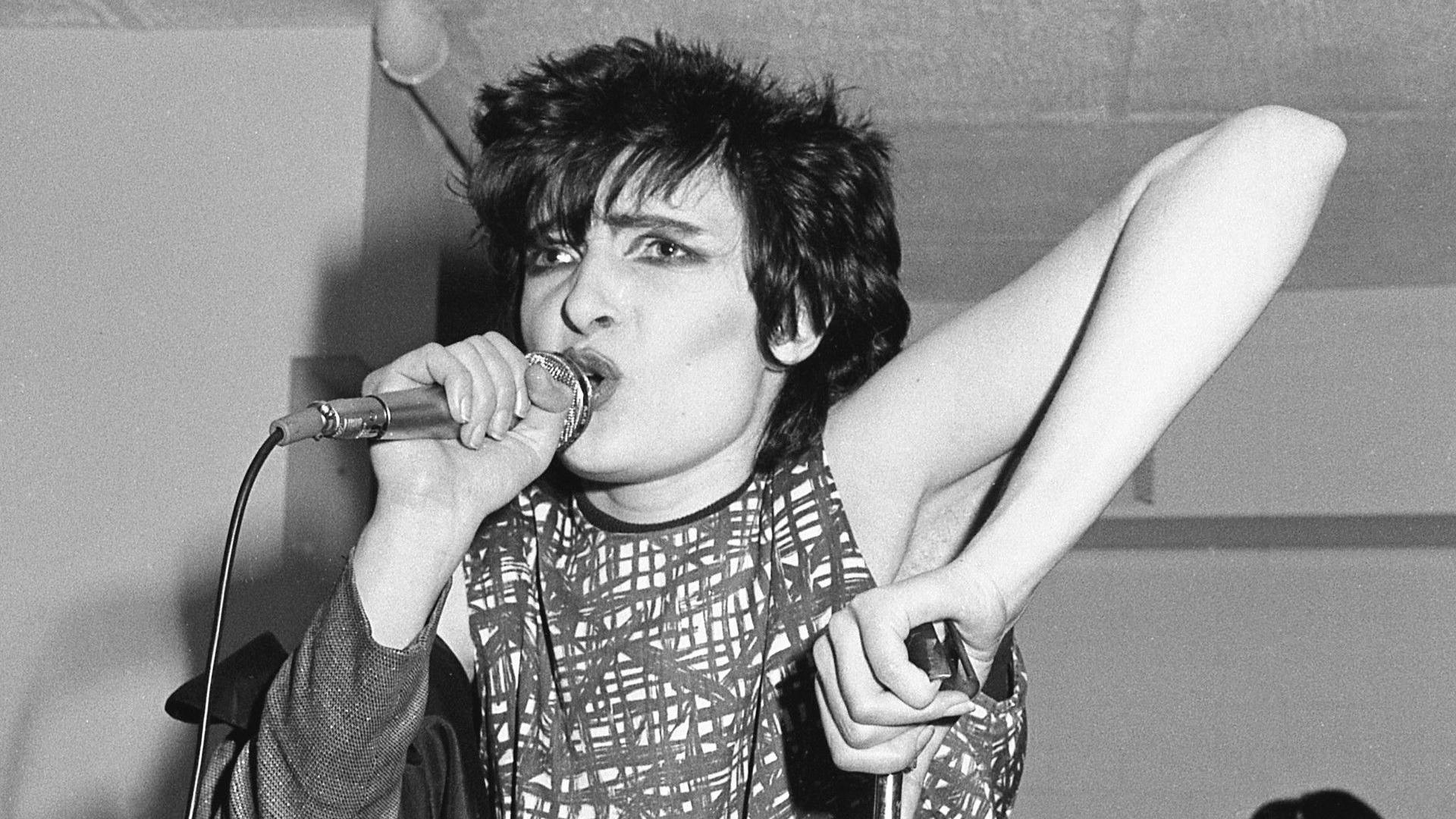
Siouxsie and the Banshees were one of the early post-punk bands to perform there
Synth City - Celebrating the Legacy of the Limit will begin in January and include voices, memories, talent and the "essence" of the era.
Mr Unwin, now 70, worked at The Limit for 10 years and remembers the outlandish demands and antics of various bands, including Jarvis Cocker wanting a supermarket trolley to be "mic'd up" and The Human League wearing plastic covers in case the crowd launched drinks on them.
He ran the club from 1978 until 1988 and in his first week he saw the B-52s, Siouxsie and the Banshees and Adam Ant perform - and frontman Adam was a "nice lad, actually".
Mr Unwin even met his wife Val there and recalled it was her "black leggings and stilettos that did it".
"She caught my eye and I just chatted her up.
"There wasn't any swiping left or right back then and on our first date I took her to see The Ramones," he said.
Val, 76, worked for Ladbrokes at the time and was meeting a reporter at The Limit to get some publicity for the National Lottery.
She went on to work behind the bar and said if it was not for the club, they would not have met.
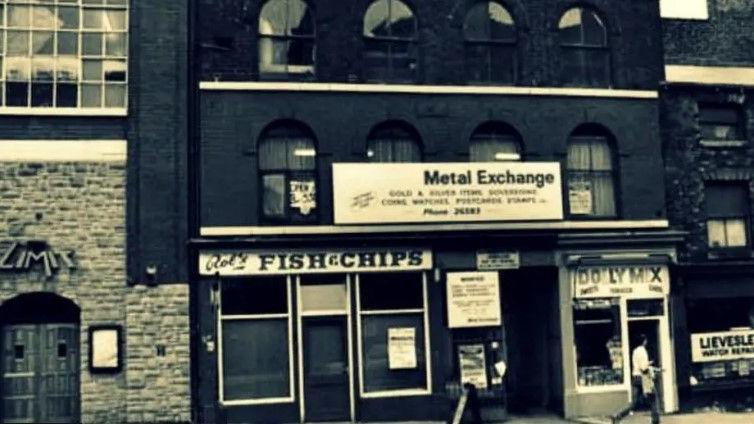
The Limit on West Street was a 'legendary' venue for electro pop during the 1970s
They still live together in Sheffield and have two children.
However, Mr Unwin said the industry was a "tough slog" and he left the scene when harder drugs started to become more commonplace, while his working hours were long.
"You had to be vibrant, fresh and entertaining five or six nights a week.
"I found it quite a strain towards the end.
"There also wasn't always a regular supply of new music, and it always came back to me that if we weren't successful and the club wasn't busy, that people weren't going to get paid and the club was going to close."
During its peak, he was earning what today would amount to £4,000 per month, and was even offered a job by Richard Branson, who had just bought a nightclub in London.
"I didn't go though because I had just met Val - so I stuck with her, bless her", he joked.
After The Limit, Mr Unwin went on to run his own commercial HGV driver training company and his wife worked for the ambulance service.
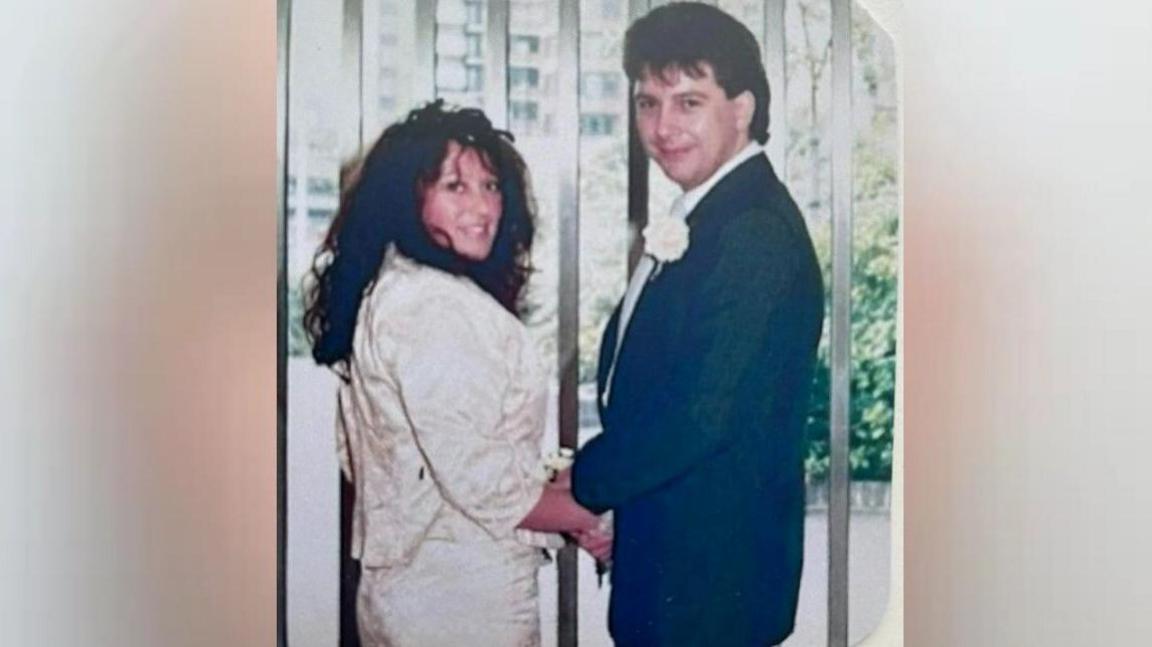
Paul and Val Unwin met at the club and later went on to get married
His best memories of the era were seeing new bands make their mark and the buzz The Limit created in Sheffield.
In 2024, a revival of the venue called The New Limit was even set to open in another West Street location, but had to close due to licensing issues.
Music historian and author Neil Anderson, who used to be a regular punter at The Limit in the 1980s and who is behind the anniversary project, told the BBC: "The Limit was a really fascinating place in terms of what it achieved. It had a real impact on the city."
He said some of the first ever wave punk bands came up from London to play there and it was a mecca for anyone who was "left of centre" in the 1970s.
"Sheffield does not make enough of its pop history. Places like Manchester base so much of its image on it so I thought it was time for Sheffield.
"The amount of artists that we've produced for a city of our size - we really do punch above our weight here," Mr Anderson added.
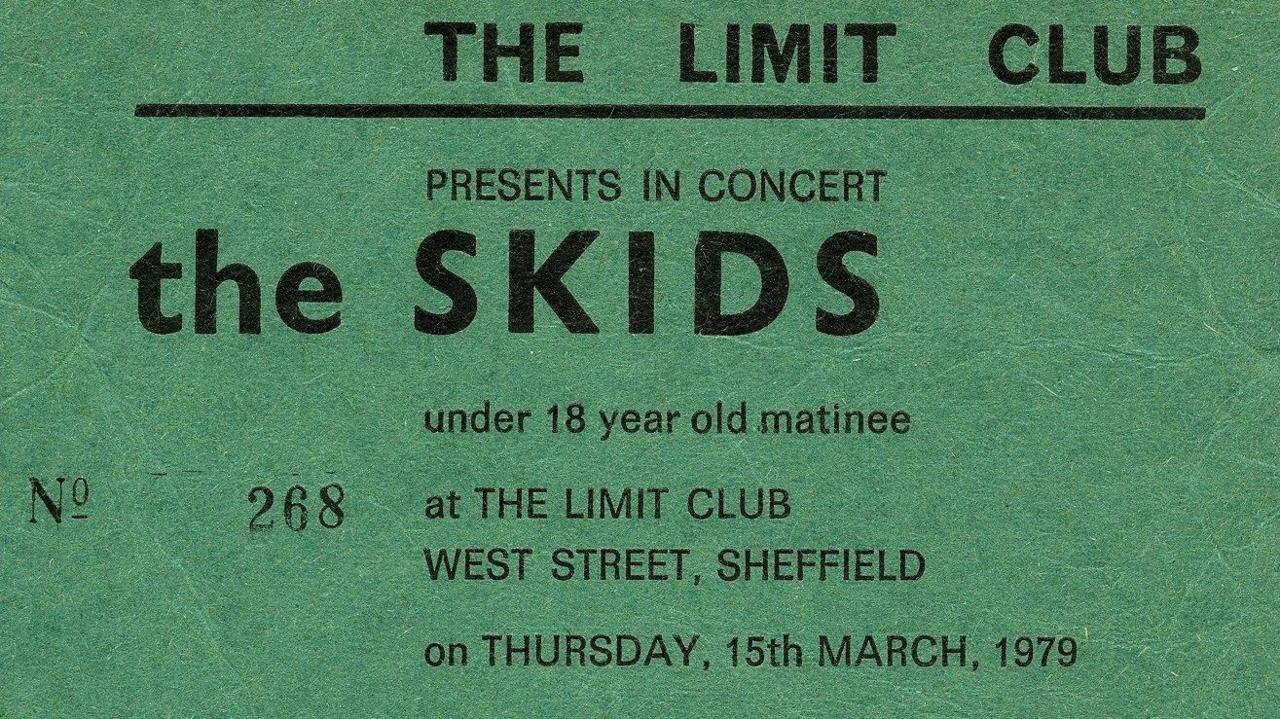
The venue was dark and and known for its 60p pints
Mr Anderson wants to create a digital archive of memorabilia, a book, podcasts, a documentary and a travelling exhibition among other things to "get as many people interacting with history as possible".
He said he hopes the project will also boost tourism in Sheffield and create the same "feelgood factor" that Manchester and London have.
The Synth City team are now preparing a bid to the National Lottery Heritage Fund to bring the project to life and are keen to gauge public enthusiasm.
Project lead Keith Radley said: "The Limit was Sheffield's Hacienda - few venues anywhere in the country have a legacy comparable and we think it's a history worth celebrating, recording and making available to wider audiences. What it achieved in its 13 years shaped an entire generation – and that impact is as strong today as it was when the venue shut .
"Many artists and clubgoers are now in their late 60s and early 70s and we think it's important we record their first hand memories whilst we still can."
Get in touch
Tell us which stories we should cover in Yorkshire
Listen to highlights from South Yorkshire on BBC Sounds, catch up with the latest episode of Look North
Related topics
- Published28 February 2024
